Early Stage Diet
So you have been diagnosed with Chronic Kidney Disease. What sort of diet should you follow and why is this important? Is it different to a normal healthy diet? Where else can I get help and information?
WHY is healthy eating important?
Having a healthy diet is important to help you control your weight or to prevent you becoming malnourished. A healthy diet can also help protect your kidneys and reduce your risk of heart disease and stroke. If the doctor in the kidney clinic feels that you need specific, individual advice they will arrange for you to see a specialist kidney dietician. However, most people can adopt a healthy eating plan using the following guidance.
WHAT is a healthy diet?
A healthy diet means eating regular meals which contain a variety of foods which are low in fat, sugar and salt, and high in fibre. Sometimes called a balanced diet it includes plenty of fresh fruit and vegetables (five portions a day) and whole grains.It will lower the amount of cholesterol in your blood and keep your blood pressure at a healthy level.
Some tips:
- Enjoy what you eat, eat slowly and eat a varied diet.
- Eat regular meals to help keep hunger at bay.
- Avoid snacks in between meals that are high in fat or sugar such as crisps, cakes and biscuits.
- Fresh fruit and raw vegetables are healthy alternatives to snack on between meals.
HOW do I eat a healthy diet?
The following guidelines outline what is involved in healthy eating:
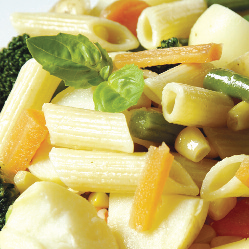
Include Carbohydrate
Starchy carbohydrates are needed for energy so that you can carry out your daily activities. Starchy foods include cereals, breads, potatoes, yam, plantain, rice, noodles and pasta. Try to include some of these in every meal.

Include Protein
Protein is needed for growth and repair of muscle tissue. The richest sources of protein are animal protein such as meat, fish, cheese, eggs and milk, and vegetable protein such as nuts, pulses (beans, lentils), tofu, Quorn and soya chunks/mince. Try to include some protein in every meal.
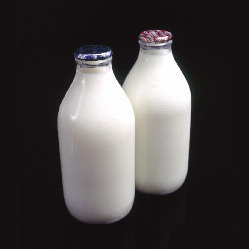
Include Calcium
Calcium is important to keep your bones healthy. It is found in dairy foods. Aim to have two portions of dairy foods every day, for example one cup of milk, 200g yoghurt or 30g (1oz) of cheese. Try to use low fat dairy products such as semi-skimmed milk, reduced fat cheese and low fat yoghurt.

Fruit and vegetables can help lower your blood pressure and protect against heart disease. They are also a good source of vitamins. Aim to eat at least five portions of fruit and vegetables per day.
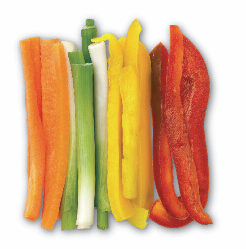
A portion is:
- One medium sized fruit e.g. apple, pear.
- Two small sized fruits e.g. two plums.
- One handful of smaller fruits, such as raspberries.
- One cup of chopped fruit or vegetables.
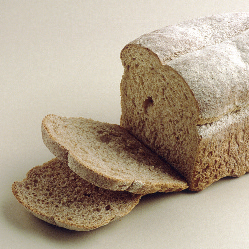
Eat MORE fibre
Fibre helps to keep your bowels regular, increase the feeling of fullness and prevent snacking. Good sources of fibre are wholemeal foods (such as brown rice and pasta), wholemeal bread, wholegrain breakfast cereals, fruits, vegetables, oats, pulses and beans.

Eat LESS Salt
Too much salt can cause high blood pressure and increase your risk of heart disease. Seventy five per cent of the salt we eat is found in processed foods.
Limit the amount of salt in your diet to no more than 6g (0.2oz) a day. One teaspoonful of salt is equal to about 6g. Do not eat salt substitutes such as LoSalt or Solo - these contain very high levels of potassium.
Note: Salt is often listed as sodium on food labels.
Some tips:
- Eat fewer processed foods such as takeaways and ready-made meals and soups.
- Eat more fresh foods.
- Avoid adding salt to your food in cooking or at the table.
- Use herbs, spices and pepper instead of salt.
- Eat fewer crisps, salted nuts, bacon, ham, sausages, soy sauce, anchovies and tinned/packet soups, as these are all high in salt.
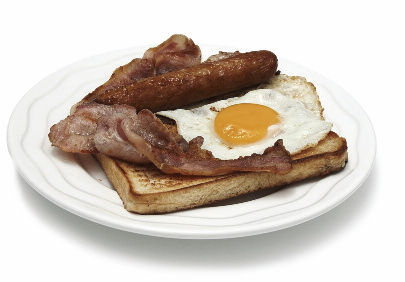
Eat LESS Fat
Eating less fat can help prevent you from becoming overweight, reduce your risk of heart disease and lower your blood pressure. Eating less fat can also help reduce the level of cholesterol in your blood. Cholesterol is a type of fat that can build up on the artery walls and narrow them. In time this causes your blood pressure to go up.
Sometimes people with CKD need medication to lower their cholesterol. There are several tablets available and your doctor will discuss with you which type may suit you best. It is likely that you will need to take these tablets for the rest of your life and you should not stop taking them without talking to your kidney doctor or GP.
Foods high in saturated fat include:
- meat pies
- sausages and fatty cuts of meat
- butter
- ghee (a type of butter often used in Indian cooking)
- lard
- cream
- hard cheese
- cakes and biscuits
- foods that contain coconut oil or palm oil
Eating some foods that are high in unsaturated fat can help decrease your cholesterol level. Foods high in unsaturated fat include:
- oily fish
- avocados
- nuts and seeds
- sunflower oil
- rapeseed oil
- olive oil
Read more about healthy food and diet.
Some tips:
- Avoid butter, lard and ghee.
- Trim all visible fat from meat before cooking.
- Remove skin from chicken.
- Choose low-fat dairy products such as semi-skimmed milk, low-fat yoghurts and reduced fat cheeses.
- Cut down on the amount of crisps, chocolates, pastries and biscuits that you eat.
- Use small amounts of unsaturated (good) fats such as olive, canola, rapeseed, and sunflower oils and spreads.
- Try reduced fat spreads and spread them thinly.
- Avoid frying food. Instead, prepare food by steaming, microwaving, grilling, boiling or baking.
- Mayonnaise and salad cream are very high in fat. Choose low-fat varieties and use sparingly.
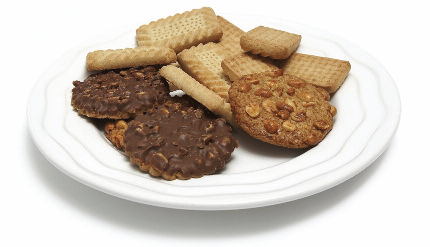
Eat LESS Sugar
Sugary foods are often high in calories and may contribute to weight gain, so try to eat fewer sugary foods.
Some tips:
- Choose products labelled ‘low in sugar’.
- Avoid adding extra sugar to drinks and food.
- Consider using artificial sweetener in place of sugar.
- Cut down on cakes, biscuits, chocolates and sweets.
|
Target /goals |
|
A balanced diet: Aim for a well balanced diet containing all the nutrients discussed in this leaflet. |
|
Salt: Aim to eat less than 6 grams (1 teaspoon) per day. Most people regularly eat more than this. Rather than try to measure your daily salt intake, concentrate on reducing the high salt foods. |
|
Fat: For people with CKD, cholesterol should be less than 5.0mmol/L. Cholesterol levels will be checked at the kidney clinic. Your GP or local pharmacy can also check your cholesterol for you by doing a simple blood test. |
|
Fruit and vegetables: Aim to eat five portions a day. |
|
Your weight: Aim for a healthy weight. Staff in the kidney clinic or in your GP surgery can advise you on what your weight should be. You can also calculate it yourself using body mass index (BMI) calculators. There are a number of BMI calculators on the internet or you can use the chart opposite. |
Information and support
Ask for copies of our patient information sheets:
- Eating less salt – information for people with kidney disease
- Making sense of labels
The following organisations have some useful tips and hints about healthy eating:
The British Heart Foundation
Tel: 0300 330 3311
www.bhf.org.uk
Blood Pressure UK
Wolfson Institute of Preventive Medicine, Queen Mary, University of London,
Charterhouse Square, London EC1M 6BQ
Tel: 020 7882 6255
www.bloodpressureuk.org
The British Nutrition Foundation
Tel: 020 7404 6504
www.nutrition.org.uk
Alcohol
Drinking excessive amounts of alcohol will cause your blood pressure to rise, as well as raising cholesterol levels in your blood. Therefore, sticking to the recommended alcohol consumption limits is the best way to reduce your risk of developing high blood pressure (hypertension) and CKD.
The recommended limits for alcohol are:
- 3-4 units of alcohol a day for men
- 2-3 units of alcohol a day for women
A unit of alcohol is equal to about half a pint of normal strength lager, a small glass of wine or a pub measure (25ml) of spirits.
Read more about alcohol.

